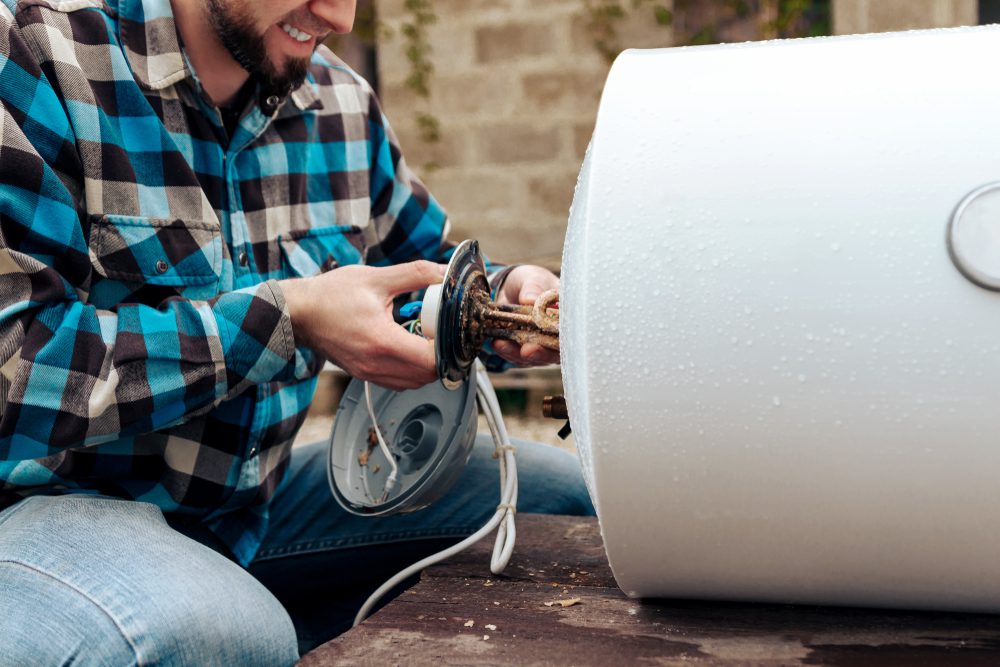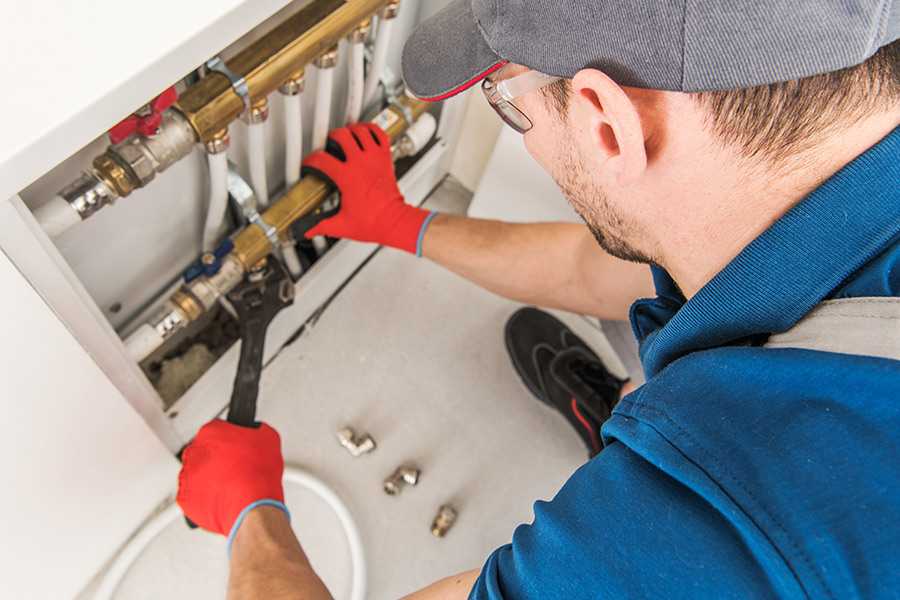Managing the Primary Water Heater Urgencies
Managing the Primary Water Heater Urgencies
Blog Article
Everyone maintains their unique opinion involving Warning Signs You Need Water Heater Repairs.

A water heater is just one of the most crucial standard appliances that can be discovered in a residence. With water heaters, you do not need to go through the stress and anxiety of heating water manually each time there is a requirement to take a bath, wash, or the dishes. However, there is always a possibility that your hot water heater would break down as with many mechanical devices.
It is important to keep in mind any kind of little breakdown as well as tackle it rapidly before things leave hand. A lot of times, your hot water heater begins to malfunction when there is a build-up of sediments as a result of continual usage. As a precaution, regular flushing of your water heater is advised to prevent debris buildup and also avoid useful failure.
Typical hot water heater emergencies and also how to manage them
Too little hot water
It might be that the water heating unit can't sustain the hot water need for your home. You might update your water heating unit to one with a larger capability.
Varying water temperature level.
Your hot water heater could start generating water of different temperature levels typically ice hot or cool warm. In this situation, the first thing you do is to make sure that the temperature level is readied to the preferred level. If after doing this, the water temperature level maintains transforming throughout showers or various other tasks, you might have a damaged thermostat. There may be a demand to change either the thermostat or the home heating device of your water heater.
Dripping hot water heater tank.
A leaky tank could be an indication of rust. It might trigger damage to the floor, wall and electrical devices around it. You can also be at threat of having your house flooded. In this circumstance, you ought to switch off your water heater, enable it to cool off, and also meticulously seek the source of the problem. At times, all you need to do is to tighten up a couple of screws or pipeline connections in cases of small leaks. If this doesn't function and also the leakage persists, you may require to use the services of a service technician for an ideal replacement.
Blemished or smelly water
When this takes place, you need to know if the issue is from the container or the water resource. If there is no funny odor when you run cold water, after that you are specific that it is your water heater that is faulty. The odiferous water can be caused by corrosion or the build-up of microorganisms or debris in the water heater container.
Conclusion
Some home owners neglect little caution and minor faults in their hot water heater unit. This only brings about further damages and a feasible total malfunction of your device. You ought to manage your hot water heater faults as quickly as they come up to avoid more expenses and also unneeded emergency troubles.
With water heating units, you do not need to go through the anxiety of home heating water manually every time there is a requirement to take a bath, do the laundry, or the meals. It might be that the water heater can't sustain the warm water demand for your home. Your water heater might start producing water of various temperature levels generally ice hot or cold hot. If there is no amusing smell when you run chilly water, after that you are certain that it is your water heating system that is defective. The odiferous water can be caused by corrosion or the accumulation of germs or debris in the water heating unit container.
Water Heater Burst: Why This Happens And What To Do Next
Water Heater Explosion Warning Signs
Since storage water heaters are made of metal and store large volumes of heated water, they carry an increased risk of leaking or even exploding as they begin to rust at the fittings and seams over time. If the thermostat controlling the water temperature within the tank is faulty, or if mineral buildup inside the water heater prevents the thermostat from sensing the water’s temperature correctly, the water could become overheated. This will expand its volume within the tank, causing it to press at the tank’s fittings and seams. If these fittings and seams are rusted or corroded, the pressure could result in a leak or even an explosion.
Here are some risk factors and warning signs of an increased risk of water heater leak or explosion:
Your water heater is more than 10 years old. Your water heater makes clanking, banging or rumbling noises as it heats up, indicating that sediment has built up and hardened inside the tank. There is visible rust on the outside of the water heater, especially located at the pipe fittings or the seams that run down the tank. There is rusty water coming from your water heater, indicating that there may be rust building up inside. Your water heater is leaking, which could indicate either a crack somewhere in the tank or a malfunctioning temperature-and-pressure (T&P) relief valve. What To Do When Water Heater Leaks
If you find water dripping or seeping out of your water heater, or pooling around it, it means your water heater is leaking. If you find a leak, it may be best to call a plumbing professional to diagnose the problem and determine how best to handle it. If you choose to tackle it on your own, there are a few things you can do.
TURN OFF THE POWER
Next, shut off the power to the hot water tank at your home’s electrical breaker box. If you don’t shut off the power, the heating elements within the tank could continue to stay hot, which could pose a fire risk.
If you have a gas-powered water heater, you’ll also need to shut off the gas line leading into the tank.
FIND THE LEAK
Now it’s time to determine where the leak is coming from. Likely locations are the T&P valve, the drain valve or one of the pipes or fittings that feed into the top of the tank. If you see any rust or corrosion on the outside of your water heater’s tank, pipes or fittings, these could also be the source of the leak.
REPAIR THE LEAK
Once you determine the source of your water heater leak, you’ll have a better idea of what steps you need to take to fix the problem. It may be a simple fix—such as using a wrench to tighten fittings or replacing the T&P valve—but it may be something more complicated. You may even need to drain the tank, remove the water heater and install a new one.
https://www.abchomeandcommercial.com/blog/water-heater-burst/

I ran across that write up on Warning Signs You Need Water Heater Repairs when doing a lookup on the web. Are you aware of someone else who is in the market for the niche? Why not share it. I thank you for reading our article about Is Your Water Heater Leaking?.
Immediate help? Ring! Report this page